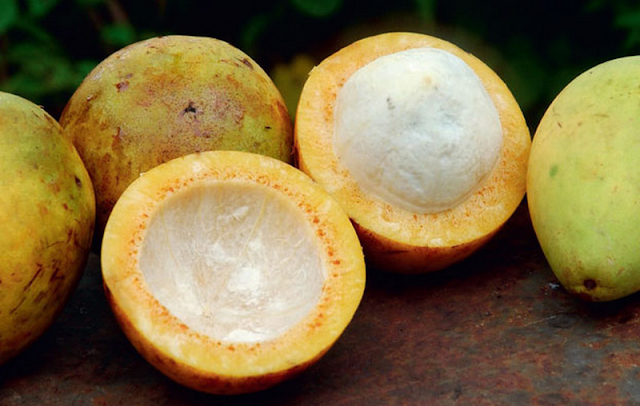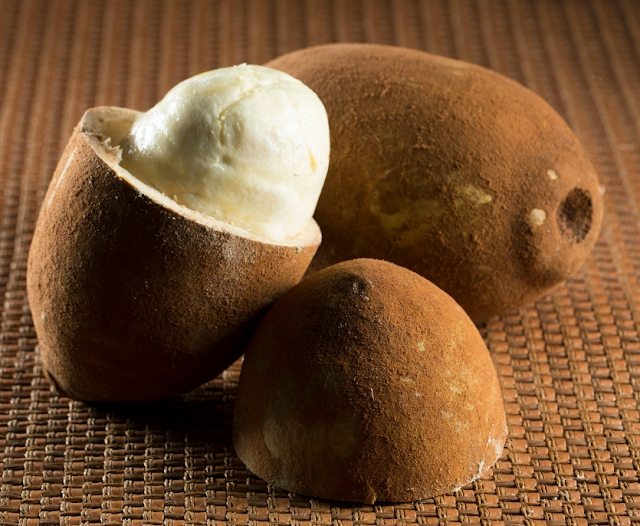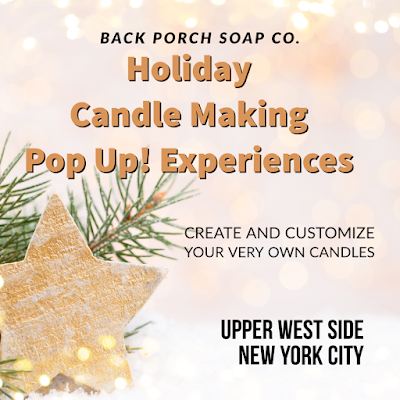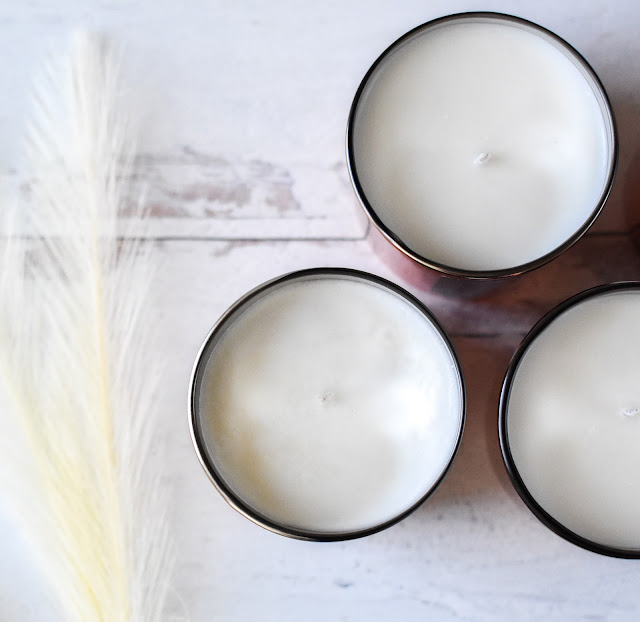The Amazon boasts some of the most impressive plant butters and oils in the world, rich in vitamins, minerals and healing plant energy. The formulas in this post make beautiful gifts for self-nurturing, which is much needed in the world today. As you learn more about these oils and butters, pay attention to which ones beckon a deepening in your own studies of plant medicine.
 |
| Source: World Atlas |
When sourcing these specialty oils and butters look for companies who sustainably source their ingredients. Some of them may be smaller companies who work directly with the farmers or cooperatives. A simple internet search will lead you to several options. Although these ingredients can be found in Brazil, several are also native to other countries, including Central and South America as well as the Caribbean. Rather than using the outdated take-and-profit business model, consider ways to give back to the communities in which these luxurious plants grow. Include customers in your discoveries about the culture and pay tribute to the indigenous who have been using these sacred plants long before us. As ethical brands we grow alongside one another, giving back to the communities in which we partner.
In the following recipes we are using five key ingredients: bacuri butter, pracaxi oil, cupuacu butter, pequi oil, and murumuru butter. Keep in mind that most of these oils and butters have strong natural scents. As a result, consider making and selling these products unscented. Essential oils and fragrance oils may compete with the natural scents. Another suggestion is to scent with a combination of complementary earthy essential oils such as woods (cedarwood, sandalwood, ho wood), spices (coriander, cardamom, ginger, black pepper), and base notes (patchouli and vetiver).
If you are accustomed to the price of olive oil and shea butter, you may have sticker shock when you see what these ingredients cost. However, try not to let the prices deter you from purchasing even a small amount for personal use. Just a simple online search and reading about their properties lured me in. These days most of us need some extra nurturing and these oils and butters are up for the challenge. If you decide to add them to your product line, consider combining them with other less expensive oils that are also used in Brazil such as olive and avocado. Let’s look deeper into each one of these nurturing ingredients.
Lastly, be sure to account for the higher cost of these in the retail price of your finished product or use in greater amounts knowing that the final price of your product will need to attract a customer base that understands and appreciates the benefits of the raw goods. Although they could be incorporated in wash off products such as soaps and scrubs, the properties of the oils and butters will have more time to penetrate and absorb into the skin if made in a leave-on product.
Bacuri Butter
 |
| Bacuri butter from the seeds of the bacuri fruit. Source: Amazon Oils |
Bacuri (Mauritia flexuosa) is an emollient butter, derived from the cold-pressed seeds of the fruit that grows on the wild bacuri. Locals have been using bacuri to help relieve insect bites and other skin problems. It is beautifully silky and golden when applied to the skin.
The soft butter ranges in color from brown to a deep, dark brown with a rich, distinctive aroma to match. It has a high amount of palmitic acid and provides a non-greasy emollience with a fast absorption rate. Bacuri is also rich in methionine, an essential amino acid, the body’s primary source of sulphur. Sulphur is used by the body to promote healthy skincare, hair and nails.
Consider pairing bacuri butter with other butters and oils as it has a strong, characteristic aroma. It has anti-inflammatory properties, making it a welcome ingredient in soothing and conditioning soaps, moisturizers, hair products and more. Try it to address skin issues such as acne, eczema, rashes and as an anti-aging ingredient.
Pracaxi Oil
 |
Pracaxi oil is derived from seeds of the Pentaclethramacroloba tree.
|
Pracaxi oil is a nutty oil derived from seeds of the Pentaclethramacroloba tree, which also grows across Central America and the Caribbean, specifically in Trinidad and Tobago. The oil has a high concentration of behenic acid, which lends to excellent moisturizing properties. Pracaxi is also rich in omega 9 and 6, both which are known to promote firmness in the skin by balancing collagen production. This oil is great for many skin conditions, including fading scars and stretch marks as well as fading hyperpigmentation. It is also antibacterial, antiseptic, antifungal and antihemorrhagic and antiparasitic.
Pequi Oil
 |
| Pequi oil is a seed oil obtained from a popular fruit in Brazil. Source: Oca Brazil |
Pequi (Caryocar brasiliense) is a nutrient-dense fruit known by its common names of Souari Nut or Cerrado’s Gold. It is pronounced “pay-kee.” Pequi oil is a seed oil. It is highly emollient and an excellent ingredient to use when treating dry skin and skin issues such as eczema and psoriasis. Pequi is packed full of minerals such as copper, zinc, magnesium, phosphorus and potassium as well as vitamin A. Pequi is also a great choice as an ingredient in haircare products.
Cupuacu Butter
 |
Cupuacu provides twice the moisture of lanolin, making it a great plant-based alternative. Deeply nourishing, it provides protection and repair benefits for both skin and hair.
Source: Candela Organic |
Cupuacu is the national fruit of Brazil. The butter comes from the pulp of the fruit. Pronounced coo-poo-assoo, it is cold pressed from the fruit seeds of the Theobroma grandiflorum tree. It is a vegan alternative to animal-derived lanolin. It contains a high-water absorption capacity and therefore functions as skin hydrator. Known to “plump” skin, it is an excellent choice for use in creams and anti-aging products.
Murumuru Butter
 |
Murumuru palm tree seeds. The butter is high in Vitamin A and is
known to help slow aging and combat acne. Source: Candela |
Murumuru butter comes from the seeds of the reddish-orange fruits of the murumuru (Astrocaryum murumuru) palm tree. Murumuru has a soft texture and is rich in vitamins A and C, omega 3, 6 and 9. It offers antibacterial and anti-inflammatory properties. It is non-comedogenic, meaning it doesn’t clog pores unlike coconut oil and some other butters. Murumuru is known to help skin conditions such as eczema and psoriasis, heal abrasions, stimulate collagen and aid in trans epidermalwater loss. It’s also excellent for sensitive skin.
Now let’s incorporate the Amazonian goodness into three products: body and hair oil, solid body butter, and body cream.
Rejuvenating Pequi Body and Hair Oil
Equipment and Supplies
Pyrex or stainless steel bowl
Scale
Spoon for mixing
Funnel
Packaging containers (bottles)
Batch size 16 oz./ 453.8 grams
1.6 oz./45g Olive oil (10%)
2.4 oz./68g Pequi oil (15%)
2.4 oz. /68g Pracaxi oil (15%)
8.64 oz./245g Avocado oil (54%)
0.16 oz./4.5g Vitamin E (1%)
0.16 oz. 4.5g Essential Oil (1%)
Directions
Combine all ingredients in a Pyrex or stainless steel bowl until well combined. Using funnel, fill bottles and top with lids.
Pracaxi Body Butter Lotion Bar
Equipment needed
Double boiler
Pyrex container or stainless steel bowls
Heat source
Scale
Spoon/spatula
Packaging containers (glass jars, plastic twist-up or tins)
Batch size 16 oz./453.8 grams
4 oz./113.4g Pracaxi oil (25%)
3.2 oz. /91g Avocado oil (20%)
4 oz./113.4g Cupuacu butter (25%)
1.6 oz./45g Bacuri butter (10%)
3.2 oz./91g Beeswax (20%)
Directions
Add butters and beeswax to double boiler and barely melt. Remove from heat. Add liquid oils, stir. You may need to slightly re-warm if the beeswax starts to solidify. When slightly cooling but not solidifying, add vitamin E and stir. Pour into containers. When completely cooled, add lids. Note: If you would like to add essential oil to this recipe, simply reduce the avocado by 1-2% and add the essential oil at 1-2%.
Bacuri Face and Body Cream
Equipment needed
Double Boiler
Stainless steel or glass bowl
Immersion or Stick Blender
Scale
Heat-proof glass container
Thermometer
Heat source
Spray bottle isopropyl alcohol
Nitrile Gloves
Hairnet
pH strips or pH meter
Citric acid
Log for batch numbers that match on your cream or lotion containers.
Jars and lids
Batch size 32 oz./907 grams
Phase A
20.5 oz. /581g Distilled water (64%)
Phase B
1.9 oz./54g Paxaci oil (6%)
1.6 oz./45.4g Bacuri butter (5%)
1.9 oz./53.9g Murumuru butter (6%)
2.56 oz./72.6g Avocado oil (8%)
1.9 oz./54g Emulsifying wax (6%)
0.96 oz./27g Stearic acid (3%)
Phase C
0.32 oz./9g Optiphen Plus (1%)
0.32 oz./9g Essential Oil (1%)
Preparation
Put on gloves and hair net. Sanitize workspace, equipment, tools and jars with isopropyl alcohol.
Heat Phase A to 170 F degrees. Keep covered to reduce evaporation.
At the same time, in double boiler, melt butters, emulsifying wax and stearic acid from Phase B. Once melted, remove from heat and add paxaci and avocado oils. If mixture clouds, put back on heat until clear. Keep oils/waxes in 130-150F degree range.
When water phase is 150-160 F degrees and oil phase is 140-150F degrees, slowly drizzle oil to water mixture while mixing with immersionblender to thoroughly incorporate all ingredients. Pulsate immersion blender on and off, stopping to stir with the blender occasionally for 10-20 minutes. This mixture will be very runny initially due to its high temperature. To speed up thickening, refrigerate for 15 minutes, stir and use stick blender to break up and smooth out the film that forms on top and any lumps, then refrigerate again until the mixture cools completely. You may have to use stick blender one more time for completely smooth consistency.
Add Phase C to mixture and incorporate with immersion blender. Test with pH strip or meter. If above 6 pH, with gloves add a small pinch of citric acid and stir for several minutes until dissolved. Test again and repeat until pH is 6 or under (the optimal pH for Optiphen Plus).
Transfer cream to clean jars and add lids.
Marla Bosworth teaches online and in-person formulating and business workshops for indie beauty entrepreneurs in New York Cityand throughout the U.S. She launched Back Porch Soap Company in 1998 and began formulating plant-based, organic and natural skincare products in her kitchen. Marla provides business strategy and product formulation mentorship sessions for beauty business entrepreneurs. www.backporchsoap.com
If you would like to share our content, please contact Marla Bosworth.








